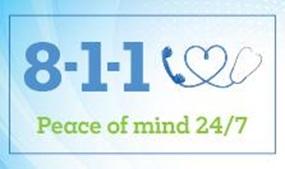Understanding Your Cervical Self-Screening Results
If you complete the test with the Health PEI Cervical Cancer Screening Service, you will receive your results by mail within three weeks after you return your kit. Please note that the Cervical Self-Screening test does not substitute for a medical or sexual health consultation. If you require medical or sexual health advice, please consult a family physician or nurse practitioner.
Understanding your results
Video available in Mandarin, Cantonese, Punjabi and French.
What happens when HPV is found?
This depends on the high-risk HPV type found in your sample.
Result:
No HPV
If your result shows no high-risk HPV was found, this means that you are very unlikely to have abnormal cells in your cervix. If you are at normal risk, you do not need to be screened again for five years. However, if you have special circumstances, such as being immunocompromised, or if your health care provider advises you to have cervical screenings more frequently, then shorter intervals may be recommended.
Result:
HPV 16 and/or 18 and/or 45
You will be referred to a specialist for a colposcopy. This is when a specialist uses a special microscope to take a closer look at your cervix. The colposcopy clinic in your area will contact you directly to schedule your appointment.
It's rare for someone with a HPV 16 and/or 18 and/or 45 result to have cancer.
If you completed your test with the Health PEI Cervical Cancer Screening Service, we will assist you in arranging your first follow-up appointment.
Result:
Other high-risk HPV types
A health care provider will do a liquid-based cytology (Pap) test to see if there are any abnormal cells on your cervix. Liquid-based cytology (Pap) test results will help health care providers monitor you closely to see if the HPV clears on its own or causes any changes to your cervix.
You will need to schedule an appointment with your health care provider. If you do not have one, we will connect you with a clinic in your community, and details will be shared in your results letter.
If you completed your test with the Health PEI Cervical Cancer Screening Service, we will assist you in arranging your first follow-up appointment.
Result:
Repeat test
It is possible there was an issue with how your sample may have been collected or there was not enough sample to provide a result. You need to repeat the cervical screening test.
HPV
Learning that a high-risk HPV type was found may cause many feelings and raise a number of questions. Having HPV does not mean you have or will develop cervical cancer.
If further testing shows you do need treatment to remove abnormal cells caused by HPV, it’s simple and very effective.
Things to consider:
- A positive HPV result might cause some anxiety. However, most people clear HPV infections on their own, and not everyone with an HPV infection will develop cancer.
- No screening test is perfect. Your cervical self-screening result might show no HPV even if abnormal cells are present. Conversely, it might detect HPV even if your cervical cells are normal.
- Screening might lead to additional tests and procedures, which can be stressful for some people.
- It's important to remember that these steps are part of ensuring your health and well-being.
Frequently Asked Questions
What causes cervical cancer?
Human papillomavirus (HPV) infection causes almost all cervical cancers. HPV is usually harmless and clears on its own, within about 2 years. If cervical cancer is going to develop, it usually takes 15 to 20 years.
What is human papillomavirus (HPV)?
HPV is a common virus that spreads through sexual contact. This includes intimate touching, oral, vaginal and anal sex.
There are more than 200 different types of HPV, many of which are harmless. But, a long-term infection with high-risk types, like HPV 16 and 18, can lead to cervical cancer. HPV types 16 and 18 cause about 70 out of 100 cases of cervical cancer.
How did I get HPV?
If you’ve had any kind of sexual contact in your life, even with one partner, there’s a good chance that you’ve come into contact with HPV. It can appear soon after exposure or years later, making it hard to know for sure when HPV was passed or by whom.
Should I tell my partner(s) my result?
It’s your choice whether or not you tell them. HPV is very common and most people who are sexually active will get HPV at some point in their life. In fact, about 3 out of 4 sexually active Canadians will have at least one HPV infection in their lifetime.
There is no treatment for the HPV infection itself. Most of the time, HPV goes away on its own without any symptoms or complications.
Should my partner(s) get screened?
Anyone with a cervix and who are between the ages of 25 and 65 should screen regularly for cervical cancer.
If your partner(s) doesn’t have a cervix, there is no need to check for HPV as they cannot get cervical cancer.
How can I prevent HPV?
Getting regular screening can help prevent cervical cancer.
- HPV vaccine: getting the vaccine can help prevent the most serious types of HPV infections.
- Use condoms: although condoms don’t completely prevent you from getting HPV, they help lower your risk. They also protect against other sexually transmitted infections.
- Don’t smoke: smoking may hurt the body’s ability to fight HPV and other infections.
We acknowledge and thank BC Cancer Care and the Provincial Health Services Authority (PHSA) for providing permission to use their content and videos.
|
|
You can now access your laboratory test reports online through your MyHealthPEI account. |



